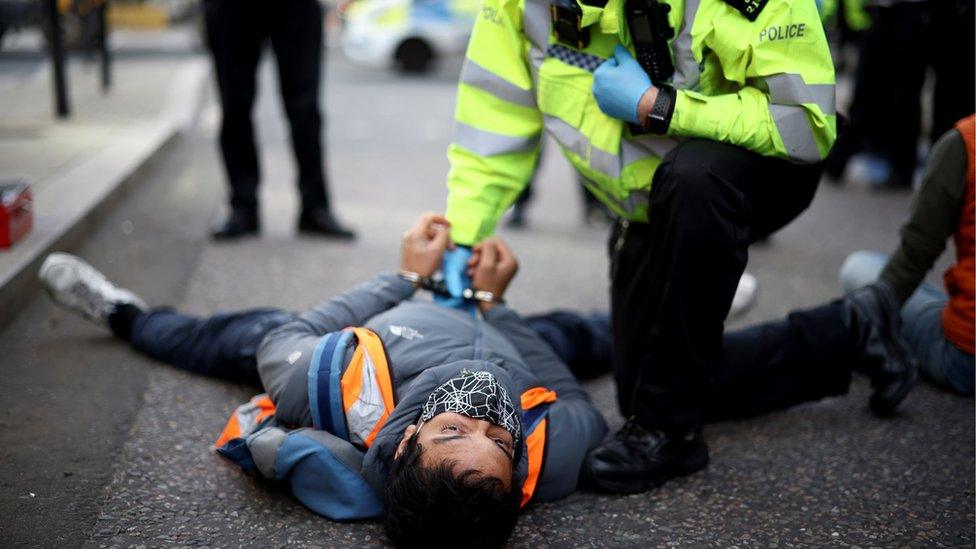Insulate Britain protest causes Birmingham centre delays
- Published
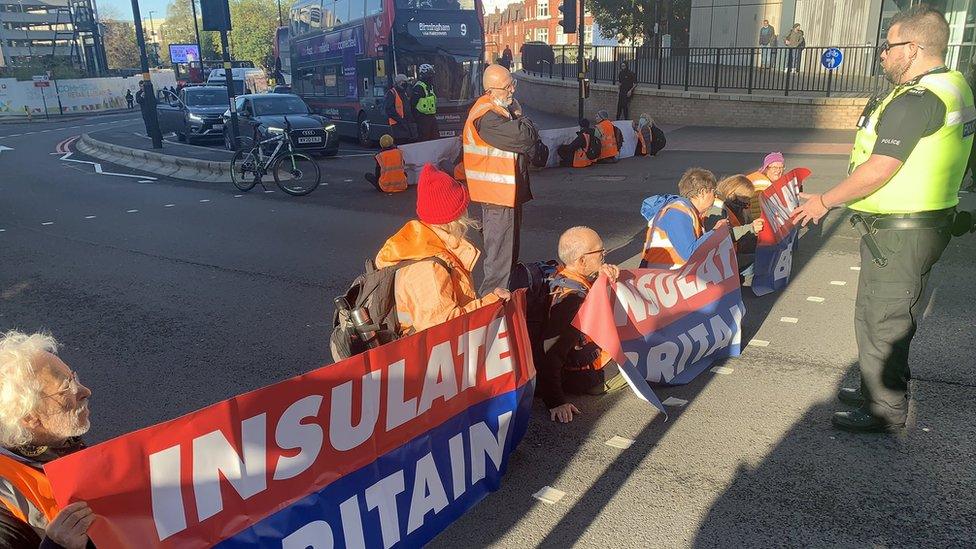
Protesters were sitting in the road in Birmingham
Protests by Insulate Britain have disrupted traffic in Birmingham city centre.
Campaigners on Tuesday morning sat down on Great Charles Street, Queensway.
Insulate Britain - which calls for homes to be low energy by 2030 to fight fuel poverty - also protested in Manchester and London.
Highways group West Midlands Roads said the Birmingham demonstration caused delays at Aston Expressway but was cleared by about 10:30 GMT.
But police said protesters returned on Tuesday afternoon and were "intermittently blocking traffic" for a short time before leaving the scene once more.
"The disruption caused was minimal, and the activists left the scene within two hours, Ch Supt Phil Dolby said.
The West Midlands force said it had "spoken to the second group of activists who demonstrated on Great Charles Street Queensway" and "directed them to stop their activity in the roadway".
"They complied and dispersed within around 30 minutes of the second event starting," Ch Supt Dolby added.
Transport for West Midlands had advised people to expect disruption to bus services.
Officers were "continuing to monitor the situation" and would "remain in the city centre", police added.
BBC correspondent Phil Mackie, at the scene in Birmingham earlier, said police had warned protesters they faced imminent arrest.
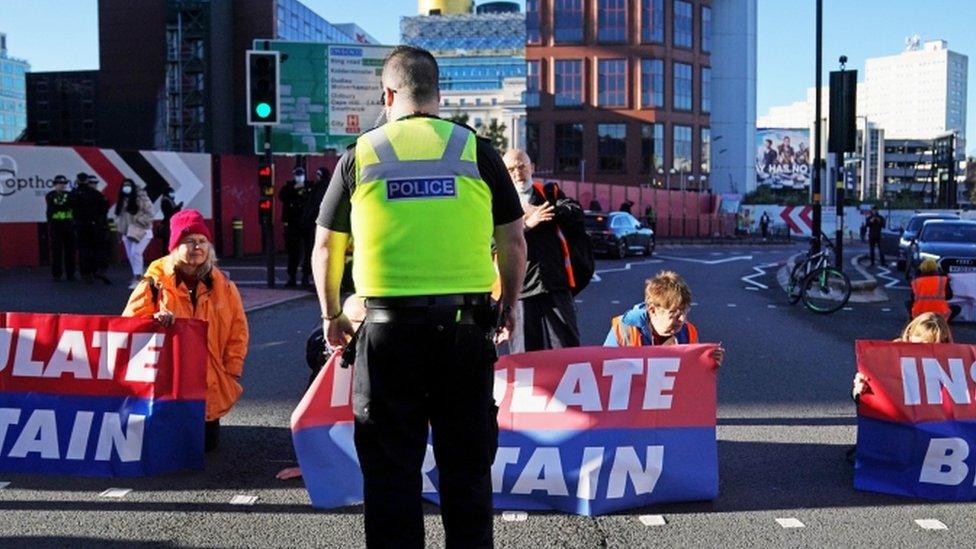
Police were sent to the scene
In a post on Twitter, Insulate Britain said 60 people were disrupting traffic in London, Birmingham and Manchester.
The London and Manchester roads are part of the strategic road network and covered by a super injunction granted to National Highways last week.
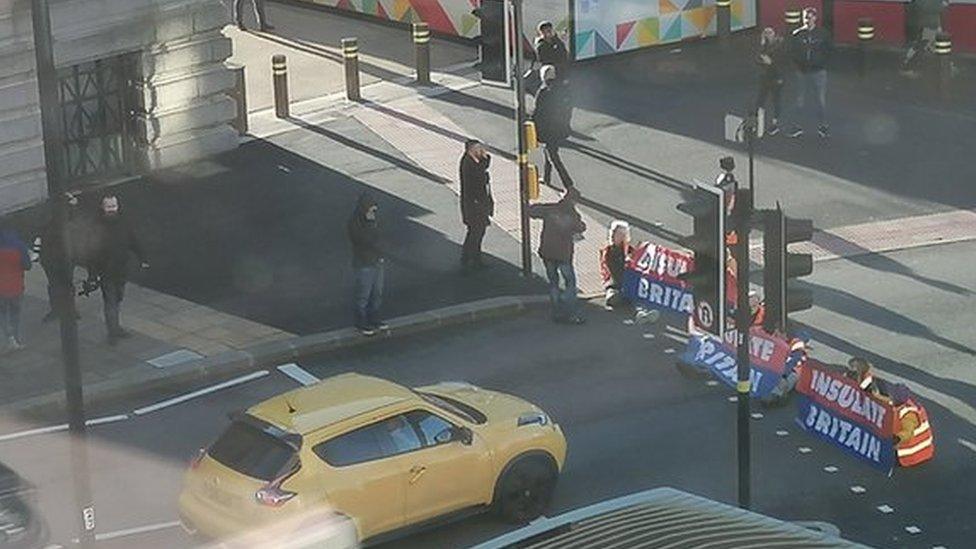
Birmingham drivers were advised to allow extra time for journeys
Mary "Madge" Smail, from Ashbourne in Derbyshire, was among those protesting in Birmingham and said she supported the action because it "wins on so many fronts".
She said: "There's so many people in fuel poverty. This is the fifth richest nation in the world and tens of thousands of people dread every winter because they can't afford to keep warm."
Campaigner Mary Smail said the public could end up thanking protesters in 10 years' time
Responding to negative responses the group had received from the public, Ms Smail said: "It's not nice being verbally and physically abused but people must understand that a few minutes' wait is a very minor inconvenience compared to the hardships that are to come."
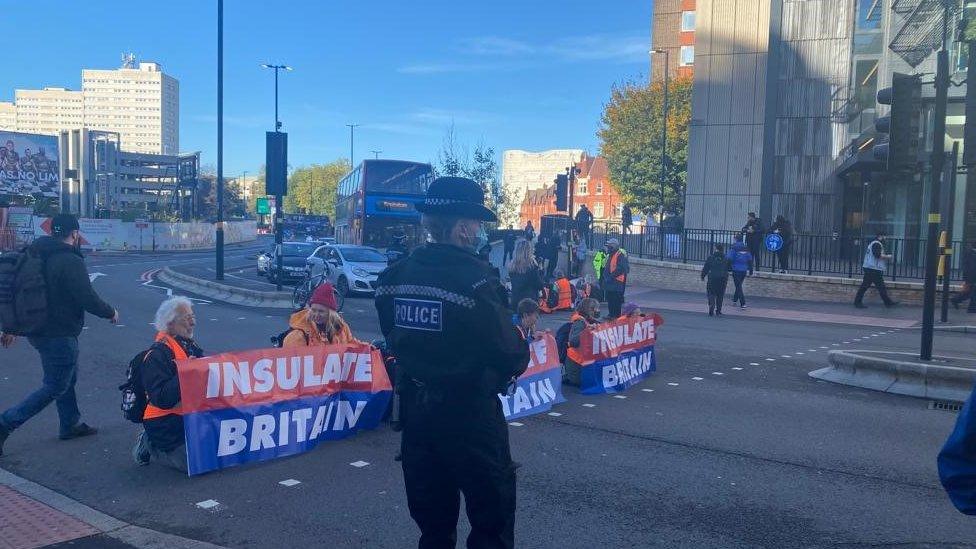
The protest began in Birmingham on Tuesday morning
Activists have blocked roads on 18 days since 13 September, a move that has seen drivers stuck in long queues of traffic.
Before Tuesday's action, there had been 770 arrests in connection with the protests.
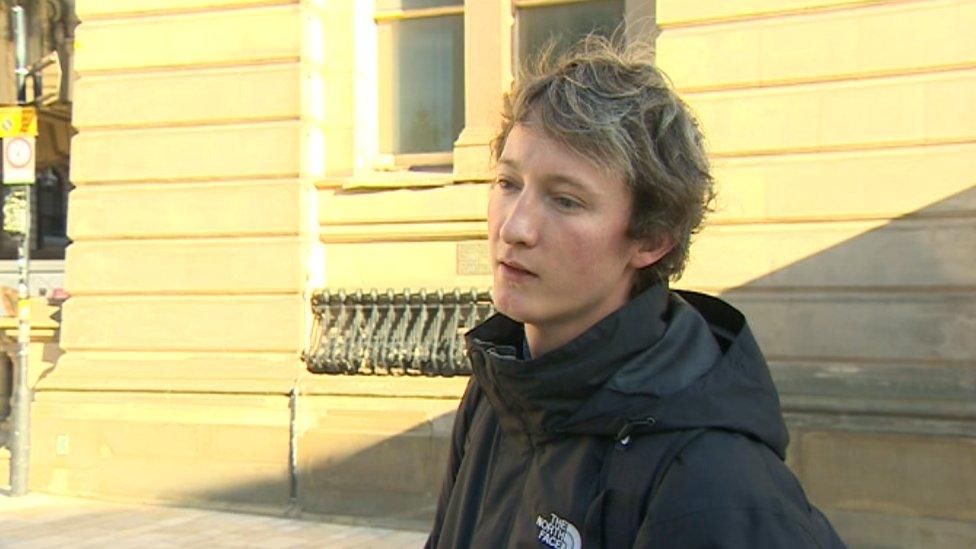
Tim Ashwell said he had sympathy for what the protesters were doing
Members of the public in Birmingham city centre on Tuesday had mixed views about the protest.
Tim Ashwell, 30, said it was a cause he supported. "Obviously sometimes it seems to affect working people more than others but there probably is a point where you need some drastic measures so I've got sympathy for what they're doing."
Stephane Gandy said he did not agree with some of the disruptive methods.
He said: "I understand their message, I think there's common sense behind it. I think the method they use is losing the public opinion and I don't think they have any support because of the method they use, so it's a bit of a shame.
"There's many other methods you could stage and get attention and get public opinion on board."
He added: "I think timing it with COP26 was excellent. It's just gluing their face on the road and blocking people going to work on huge roads - I think it's wrong, it's not getting the right message across."
West Midlands Police said it would continue its presence at the scene on Tuesday evening and officers would be "ready to respond to any further issues".

Follow BBC West Midlands on Facebook, external, Twitter, external and Instagram, external. Send your story ideas to: newsonline.westmidlands@bbc.co.uk, external
Related topics
- Published2 November 2021
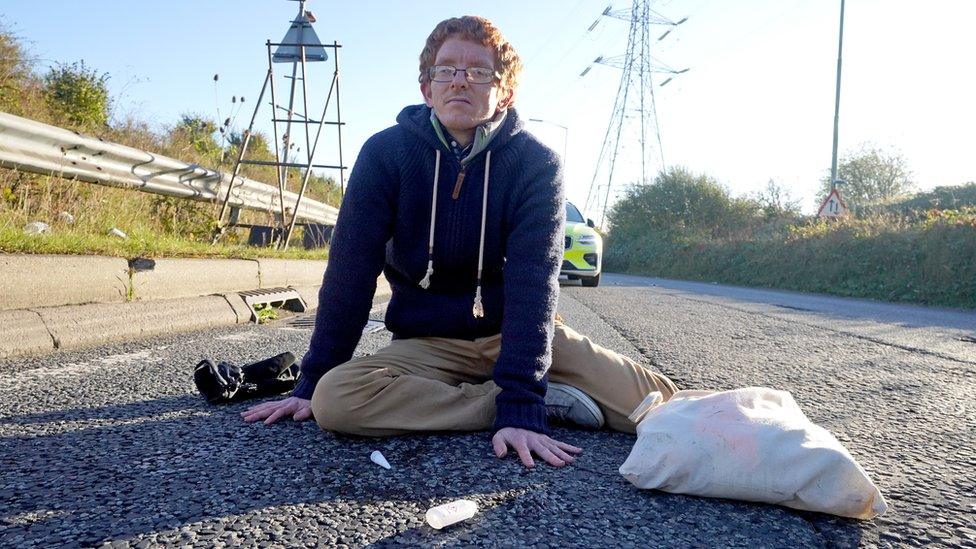
- Published29 October 2021
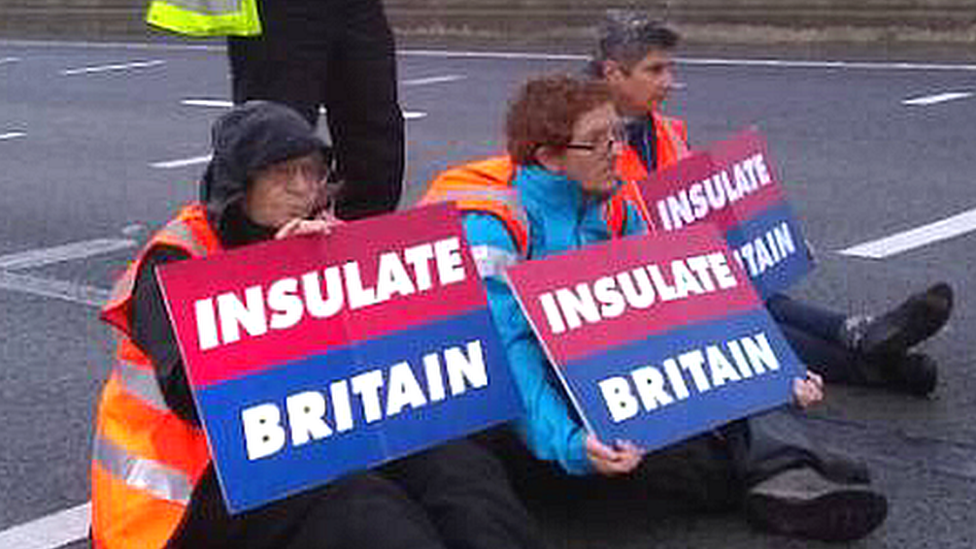
- Published27 October 2021
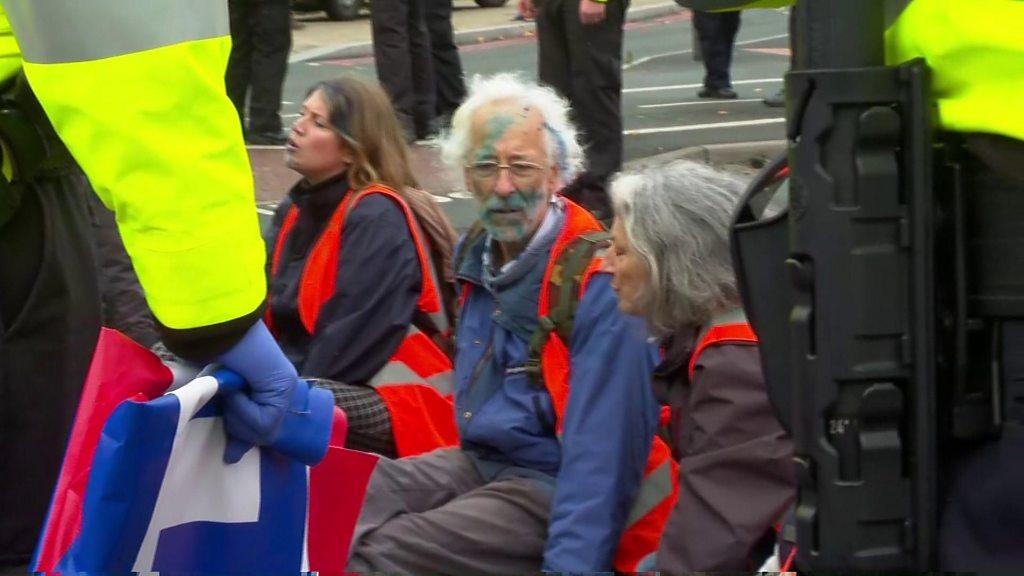
- Published25 October 2021
